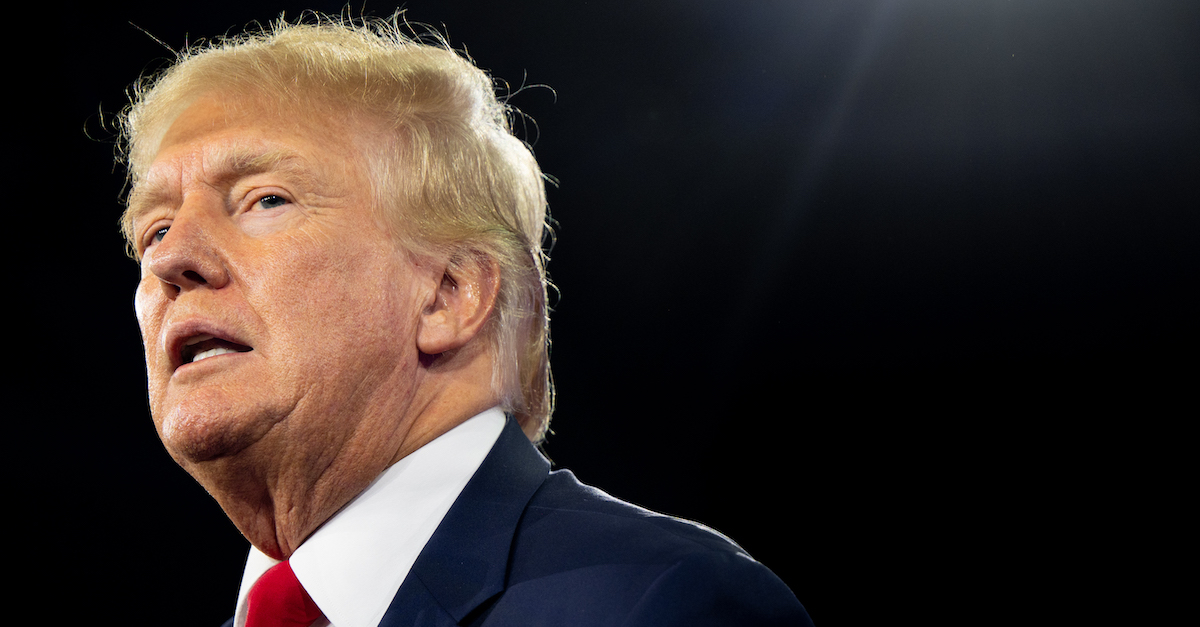
Former President Donald Trump speaks at the Conservative Political Action Conference (CPAC) at the Hilton Anatole on Aug. 6, 2022 in Dallas, Texas.
The independent monitor appointed to oversee the Trump Organization as the New York attorney general’s fraud lawsuit unfolds must report any “unusual,” “suspicious” or “fraudulent” activity, a Manhattan judge instructed on Thursday.
Earlier this month on Nov. 3, Manhattan Supreme Court Justice Arthur Engoron granted New York Attorney General Letitia James’s request to put former President Donald Trump’s business empire under a monitor’s watchful eye during the litigation.
On Nov. 14, Engoron tapped a familiar figure for such a task: retired Southern District of New York Judge Barbara Jones, who served as special master for the privilege reviews of ex-Trump fixer Michael Cohen and former Mayor Rudy Giuliani.
Over the course of her new job, Jones must scrutinize the submission of financial information to any accounting firm compiling Trump’s 2022 Statement of Financial Condition and “any persons or entities, including, without limitation, lenders, insurers, and taxing authorities.” She must also look into any corporate restructuring, disposition or dissipation of any significant assets.
The attorney general said that Trump Organization tried to avoid the lawsuit accusing the company of inflating and deflating assets for tax purposes by creating a new out-of-state entity called Trump Organization II. Engoron’s order barred any transfer of assets to that entity.
“The Monitor’s duties shall not include monitoring Defendants’ normal, day-to-day business operations,” Engoron wrote, in a notable carve-out.
For Engoron, such measures were necessary in light of the “demonstrated propensity” for Trump, his children, and his businesses to “engage in persistent fraud.”
Trump’s attorney Alina Habba appealed the ruling, which she called “overly broad, overreaching, and unenforceable on its face.” New York’s Appellate Division, First Department — one of the state’s intermediate appellate courts — recently refused to pause it immediately, instead opting to fast-track consideration of a stay before a full panel. That appeal remains ongoing.
For now, the court monitoring remains in force, and Engoron provided more detailed instructions regarding its operation on Thursday.
Within five days of any request by the monitor, the Trump family or business must provide “any statement of financial condition, other asset valuation disclosure, or other financial disclosure to any persons or entities, including, without limitation, lenders, insurers, other financial institutions, or taxing authorities.”
They must also provide, within that time, “any non-privileged document, book, record, or other information bearing on any of the foregoing, or reasonably necessary to assess the accuracy of any representation.”
By Nov. 30, the Trump Organization must disclose a “full and accurate” corporate structure.
“Defendants are hereby ordered to provide the Monitor, at least 30 days in advance, information about any planned or anticipated restructuring of the Trump Organization, its subsidiaries, and all other affiliates, including trusts, or of any plans for disposing, refinancing, or dissipating any significant Trump Organization assets,” the supplemental order states. “In the absence of any such activity , Defendants shall provide the Monitor with a sworn statement on a monthly basis that no such activities have been undertaken.”
Should Judge Jones discover anything amiss, the supplemental order instructs her to take quick action.
“The Monitor shall immediately report to this Court and the parties any unusual and/or suspicious and/or suspected or actual fraudulent activity,” the order states.
The order as Trump Organization’s former chief financial officer Allen Weisselberg, a trusted confident of the former president, testified in the company’s criminal trial. He reportedly said the former president had a role in the fraud scheme to which he pleaded guilty, according to CBS News.
A representative for Habba did not immediately respond to an email requesting comment.
Read the order here.